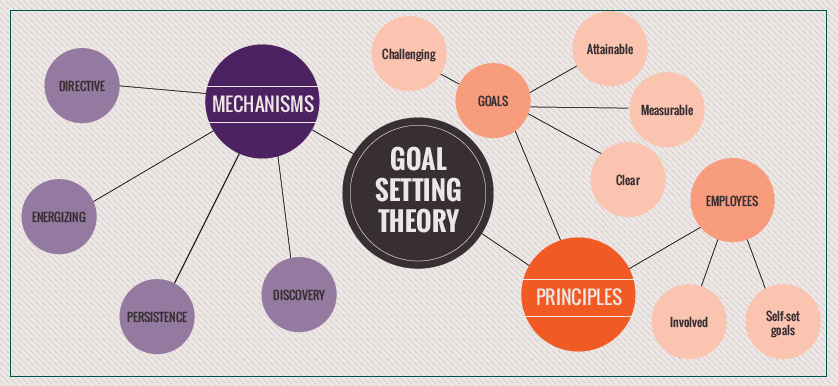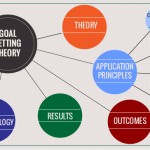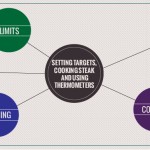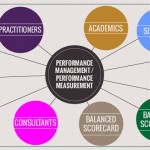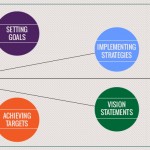An introduction to theory in Performance Management: Goal Setting Theory
smartKPIs.com Performance Architect update 6/2010
In my previous update I highlighted the benefits of increasing theory awareness in performance management practice. It has the potential to positively impact the process of selecting, developing and using performance management solutions. Over the next few months, I will gradually introduce some of these theories, in no particular order.
A very important theory informing performance management is the Goal Setting Theory, which is considered to be one of the most effective motivational theories.
It was formulated inductively based on empirical research conducted over nearly four decades by Locke and Latham. Its roots are based on the premise that conscious goals affect action (Locke & Latham, 2002).
An important note to make is that the use of the term “goals” in this theory. Goals are considered here to be the object or aim of an action. As the terminology used in performance management as a discipline is loosely structured, the goal setting theory itself applies to objectives, Key Performance Indicators and targets as well.
Principles
There are four general principles that are linked to an increase in motivation, thus generating optimal performance:
- Goals should be challenging, but attainable. Locke and Latham (2004) found a positive, linear function in that the most difficult goals produced the highest levels of effort and performance. They also found that performance decreased once the limits of ability were reached or when commitment to a highly difficult goal lapsed.
- Goals should be specific rather than vague. Research by Locke and Latham (1990) showed that specific, difficult goals consistently led to higher performance than urging people to do their best. As specific goals vary in difficulty, goal specificity in itself does not necessarily lead to high performance, but reduces variation in performance by reducing the ambiguity about what has to be achieved. (Locke, Chah, Harrison, & Lustgarten, 1989).
- Employees should be involved in the process of setting their own goals. When goals are self set, people with high self-efficacy set higher goals than do people with lower self-efficacy. They also are more committed to assigned goals, find and use better task strategies to attain the goals, and respond more positively to negative feedback than do people with low self-efficacy (Locke & Latham, 2002, Locke & Latham, 1990). The goal–performance relationship is strongest when people are committed to their goals.
- Goals should be measurable in terms of being clearly understood by employees: quantity, quality, time, and cost. For goals to be effective, people need summary feedback that reveals progress in relation to their goals. If they do not know how they are doing, it is difficult for them to adjust the level or direction of their effort or to adjust their performance strategies to adjust their performance strategies to match what the goal requires. Summary feedback is a moderator of goal effects in that the combination of goals plus feedback is more effective than goals alone (Locke & Latham, 2002).
Mechanisms
Locke & Latham (2002) propose four mechanisms through which goals affect performance:
- Directive function. They direct attention and effort toward goal-relevant activities and away from goal irrelevant activities.
- Energizing function. High goals lead to greater effort than low goals.
- Impact on persistence. When participants are allowed to control the time they spend on a task, hard goals prolong effort (LaPorte & Nath, 1976). There is often, however, a trade-off in work between time and intensity of effort. Faced with a difficult goal, it is possible to work faster and more intensely for a short period or to work slower and less intensely for a long period.
- Affect action indirectly by leading to the arousal, discovery, and/or use of task-relevant knowledge and strategies (Wood & Locke, 1990).
While Goal Setting Theory is generally analyzed at individual level, its principles are considered relevant at organizational level, too. Locke (2004) argues that goal-setting is effective for any task where people have control over their performance. Research in this field currently explores goal setting theory at both individual and organizational level. Elements of the Goal Setting Theory are present in various degrees in all aspects that relate to performance management practice. Linking theory to practice is up to all of us.
Stay smart! Enjoy smartKPIs.com!
Aurel Brudan Performance Architect, www.smartKPIs.com
References
- LaPorte, R.E., & Nath, R. (1976). Role of performance goals in prose learning. Journal of Educational Psychology, 68(3), 260-264.
- Locke, E. A., Chah, D., Harrison, S., & Lustgarten, N. (1989). Separating the effects of goal specificity from goal level. Organizational Behavior and Human Performance, 43, 270–287.
- Locke, E. A., & Latham, G. P. (1990). A theory of goal setting and task performance. Englewood Cliffs, NJ: Prentice Hall.
- Locke, E. A. and Latham, G. P., (2002), “Building a Practically Useful Theory of Goal Setting and Task Motivation”, American Psychologist, Vol. 57, No. 9, pp. 705–717.
- Locke, E. A. (2004), “Goal setting theory and its applications to the world of business”, Academy of Management Executive, Vol. 18, No. 4, pp. 124-125.
- Wood, R., & Locke, E. (1990). Goal setting and strategy effects on complex tasks. In B. Staw & L. Cummings (Eds.), Research in organizational behavior (Vol. 12, pp. 73–109). Greenwich, CT: JAI Press.

Tags: Aurel Brudan, Latham, Locke, Performance Architect Update
